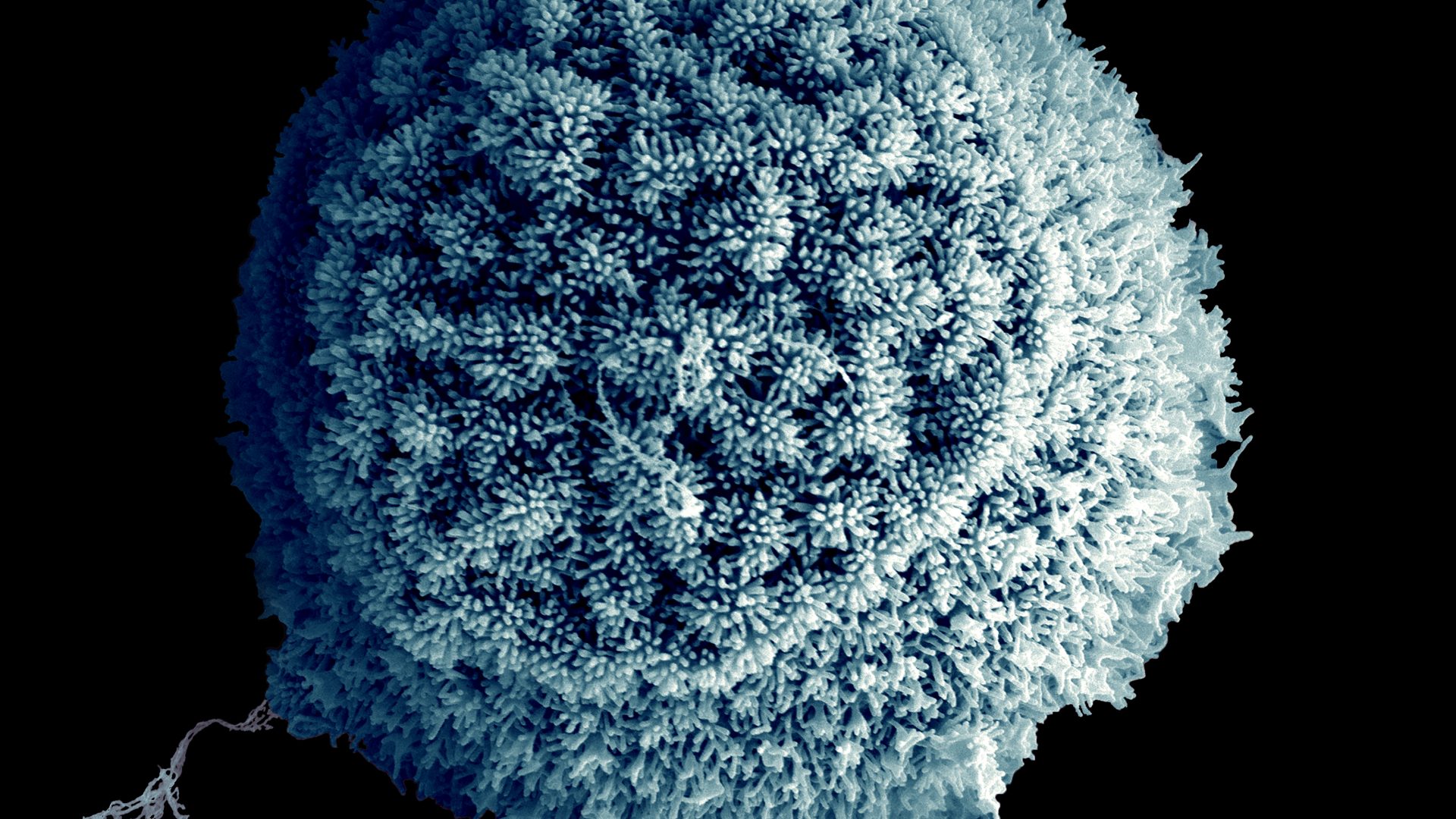Pancreatic cancer is notoriously hard to diagnose and treat. Survival for this type of cancer remains low; only around 5% of people survive 10 years after their diagnosis. And, over half of all pancreatic cancer patients are diagnosed when the disease has already spread, which is one of the reasons for poor survival.
With our funding, a new study has identified a promising approach that may reduce the chance of cancer spreading to the liver by blocking an aggressive molecule called CD73.
Identifying and blocking aggressive cancer cells
The research, published in Science Advances, found that many patients’ pancreatic cancer contains amoeboid cells. These are aggressive, invasive and fast-moving cells that weaken the immune system. These cells have previously been identified in other cancers, such as melanoma, breast, liver and prostate cancer, and linked with poor survival.
This is the first time that they have been found in pancreatic cancer.
The researchers discovered amoeboid cells in pancreatic cancer produce high levels of a molecule called CD73, which drives their ability to spread and weaken the immune system. When this molecule is blocked, the researchers were able to reduce the spread of cancer to the liver.
A promising approach for future treatment of pancreatic cancer
The results of the study suggest that blocking CD73 could be a promising approach for treating pancreatic cancer and its spread. One particular benefit is that drugs blocking CD73 have already been developed and are being tested in clinical trials for various types of cancer.
The researchers plan to expand their research to other cancers and see if they uncover the same link between amoeboid cells and CD73. A key focus will be breast cancer, which is the most common type of cancer in the UK and the second most common cause of cancer death in women.
The results are very promising in highlighting a potential way of treating the spread of one of the most aggressive and poorly survived cancers. More than 10,000 people are diagnosed with pancreatic cancer in the UK every year, so finding a way to improve its extremely low survival rate even by a little could save many years of human life. Pancreatic cancer remains one of the deadliest cancers and current treatments are not working well. To improve these, we urgently need to understand the disease better.Professor Victoria Sanz-Moreno, Professor of Cancer Cell Biology at Queen Mary University of London
Thanks to research, over one million lives have been saved from cancer since the 1980s, but improvements haven’t been equal across all cancer types. Pancreatic cancer remains hard to treat and survival hasn’t improved in the past 50 years. Research like this is vital to innovate new ways to treat pancreatic cancer, which is the fifth most common cause of cancer in the UK. The team’s discoveries offer a promising new route for drugs of the future.Dr Claire Bromley, Senior Research Information Manager at Cancer Research UK
Our investment in cancer research
In 2018, Barts Charity made a £10m strategic investment into cancer research at Queen Mary to expand its programmes and recruit new scientific talent to East London. So far, our funding has helped to pay for 14 research group leaders who have brought their expertise to East London and are building brilliant teams.


